Throughout American history, a small handful of people who are not American citizens have had incredible impacts on the United States. The American government has honored foreigners in a variety of ways including bestowing the Medal of Honor and the Presidential Medal of Freedom. However, one of the most prestigious yet least known accolades is honorary American citizenship.
There are two major ways that individuals can attain American citizenship: through birth or naturalization. The process of becoming a citizen via naturalization is a long and arduous process. One must be a permanent resident (also known as being a green card holder) for five years, but the process of acquiring a green card can take decades. Once an applicant files their application for citizenship (which itself costs a non-refundable $725), they must pass a two-part test that assesses their English speaking, reading, and writing ability as well as their knowledge of American history.
The process of receiving honorary American citizenship is very different. It involves doing so great a deed for either the United States or the world that Congress or the President believes that an individual should be rewarded with the highest honor — American citizenship.
Fifty-eight years ago today on April 9, 1963, Congress voted to honor Sir Winston Churchill as the first recipient of honorary American citizenship. Churchill earned the award for his intrepid leadership as Prime Minister of the United Kingdom during World War II and for his deep and consistent devotion to freedom and liberty. Public Law 88-6 stated that “the President of the United States is hereby authorized and directed to declare by proclamation that Sir Winston Churchill shall be an honorary citizen of the United States of America.” This congressional authorization for Churchill set the precedent for how all seven of the subsequent honorary citizens received the honor.
The general concept of honorary citizenship dates back to the Revolutionary War. After the United States were formed, the states of Maryland and Virginia offered local citizenship to Marquis de Lafayette, the French general who single handedly helped to win the war in the Americans’ favor. Churchill’s award was the first time Congress and the President acted at a federal level to offer citizenship, although honorary, to a foreign national.
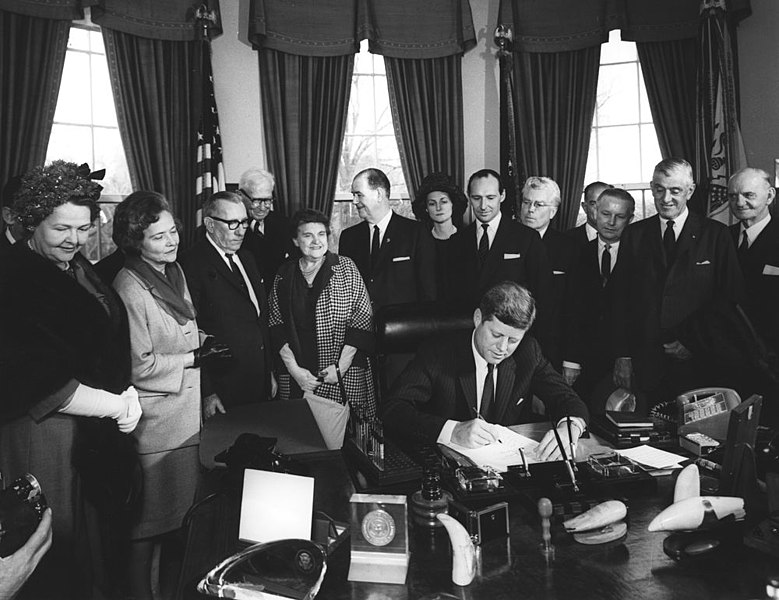
Few perks come with honorary citizenship other than its symbolic merit. The Foreign Affairs Manual of the State Department specifies that “Honorary citizenship does not carry with it the rights and privileges of ordinary citizenship, and such status does not confer any special entry, travel, or immigration benefits upon the honoree or the honoree’s relatives and dependents.” The award “is strictly a symbolic act.” As a result, Churchill could not skip customs when he would arrive at U.S. airports, work in the U.S. without a work permit, or travel places using his U.S. award for entry.
Churchill was the only recipient to receive a special “Honorary Citizen’s Document” with his award. Although the document looks exactly like an American passport with its navy blue coloring, gold lettering, and the Great Seal of the United States, 8 Fam 306 explicitly states that it is mean to convey respect, but is not a valid travel document, and does not confer any special entry, travel or immigration benefits.
Churchill watched the ceremony on television given that intercontinental travel for an 88-year-old was quite arduous at the time. Churchill’s son Randolph and grandson Winston accepted the award on his behalf in the White House Rose Garden. At the ceremony, President John F. Kennedy lauded Churchill, saying that “We meet to honor a man whose honor requires no meeting — for he is the most honored and honorable man to walk the stage of human history in the time in which we live.” Kennedy praised his writing, leadership, and fervent commitment to liberty during his short remarks. A letter penned by Churchill followed the president’s proclamation saying, “I have received many kindnesses from the United States of America, but the honour which you now accord me is without parallel.” Churchill and Mother Teresa were the only two recipients to be honored as an honorary citizen while still alive.
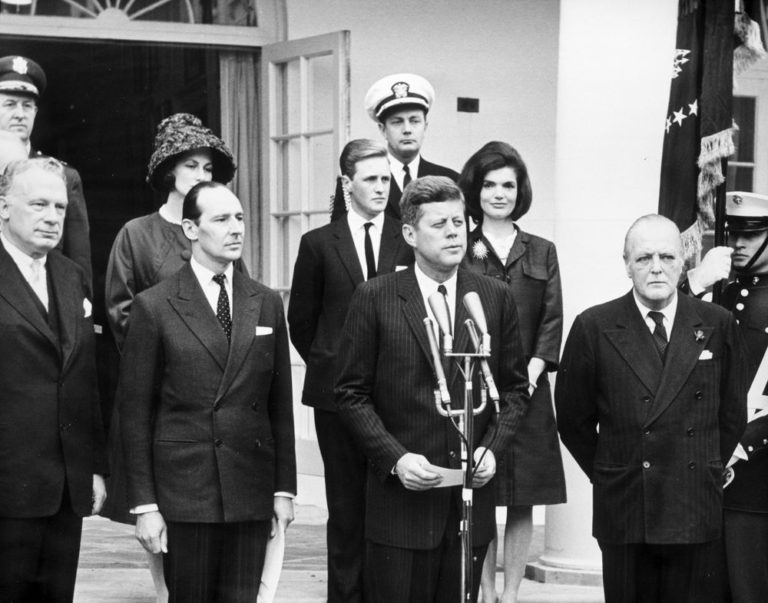
The next person to be awarded honorary American citizenship was a little-known international hero named Raoul Wallenberg. Wallenberg was a Swedish diplomat stationed in Hungary who was tasked with saving as many Jews as possible from Nazi death camps. Wallenberg invented a special Swedish passport called a Schutzpass and began to distribute thousands of them throughout Hungary. The Schutzpass provided anyone holding it diplomatic immunity, preventing Jews from being deported out of Hungary to concentration camps. The Schutzpass alone is said to have saved over 20,000 Jewish lives. Wallenberg continued his crusade by renting buildings across Budapest that would give residents Swedish diplomatic immunity, providing a place for Jews to live where they were afforded some security. After the Soviets reached Budapest and liberated it from Nazi control, Wallenberg disappeared and was never seen again. The United States Congress voted to make Wallenberg an honorary citizen on October 5, 1981.
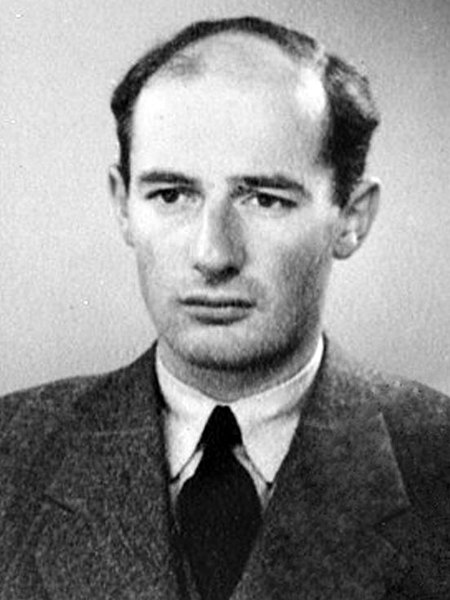
Three years later, Congress honored William and Hannah Penn for their work founding the state of Pennsylvania and laying the groundwork for many institutions that exist in America today. Although the Penns founded an American colony, they remained British citizens (they died half-a-century before the U.S. became independent). The joint resolution in Congress that passed on October 19, 1984 identified the Penns’ devotion to providing free education to all people regardless of race, gender, or “ability to pay,” the Pennsylvanian public judicial system, their commitment to the freedom of religion, and specifically Hannah Penn’s leadership of the colony for six years after William’s death.
Congress next granted honorary citizenship to an Albanian nun named Agnes Gonxha Bojaxhiu — better known as Mother Teresa. When she was made an honorary citizen in 1996, she had already won the Nobel Peace Prize as well as the Presidential Medal of Freedom. Congress cited her tireless work for orphaned children across India as well as her Missionaries of Charity that provided help to all who needed it. Congress also recognized Mother Teresa’s advocacy work in the United States.
The final three people who have been awarded honorary citizenship all played crucial roles in the Revolutionary War. The most well-known of these war heroes and the one who arguably had the greatest impact on American history is Marquis de Lafayette. Lafayette’s main contributions to the colonists’ cause were his tireless advocacy directed at the French monarchy to send more supplies and troops to aid the Americans and his fearless leadership at the battle of Yorktown — a decisive victory that essentially guaranteed independence. Although a Maryland statute declared Lafayette a naturalized citizen in 1784, it was not until 2002 that Congress bestowed upon him the title of honorary citizen. In 2009, Congress awarded Casimir Pulaski, another Revolutionary War hero, with this honor. Pulaski is best known for being the “The Father of the American Cavalry” and saving the life of George Washington at the Battle of Brandywine in 1777. Pulaski wrote in a letter to Washington after his arrival in America saying “I came here, where freedom is being defended, to serve it, and to live or die for it.” The latest honorary citizen to enter the ranks was Spanish Revolutionary War hero Bernardo de Gálvez in 2014. De Gálvez is best known for his efforts to recruit and lead “an army of 7,500 men made up of Spanish, French, African-American, Mexican, Cuban, and Anglo-American forces” to fight for the Americans.
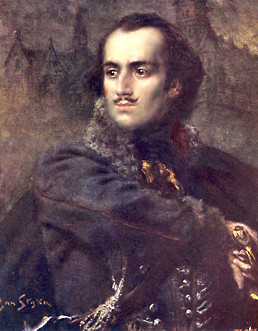
There are hundreds of non-Americans that seem to be worthy of the award; however, only these eight have been selected in the past 58 years. In the statute that confers honorary citizenship to de Gálvez, it states that “honorary citizenship is and should remain an extraordinary honor not lightly conferred nor frequently granted,” signifying that the award is intentionally elusive, and that the selection process is especially stringent. Perhaps the award also serves to highlight those in history who have not gotten the recognition they deserved, as in the cases of Wallenberg, Pulaski, and de Gálvez.
The eight individuals who have been bestowed honorary American citizenship represent the values the United States strives for. Every individual who is an honorary citizen played a unique role in establishing the values of freedom, liberty, and justice throughout their lives and represent exactly what this nation hopes to be.
Featured image: Churchill’s “Honorary Citizen’s Document” (Lord Harris, Wikimedia Commons, Creative Commons Attribution-Share Alike 3.0 Unported license)
Become a Saturday Evening Post member and enjoy unlimited access. Subscribe now
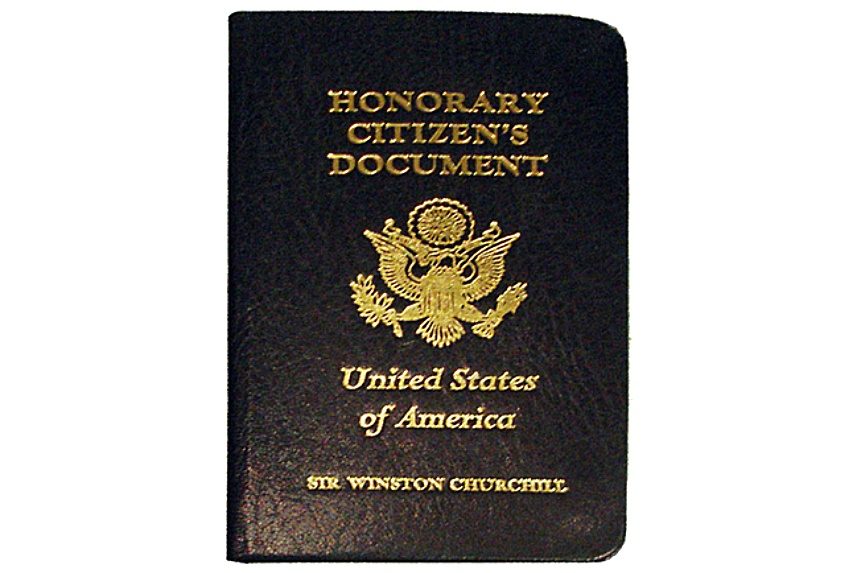
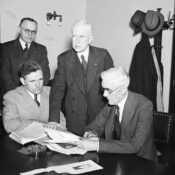
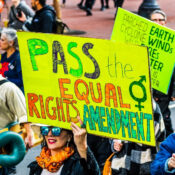
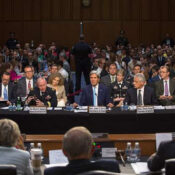
Comments
Thank you for catching this error! It’s been fixed.
The word “freedom” is misspelled “ freedpom” in the last paragraph. Good article otherwise, very informative.